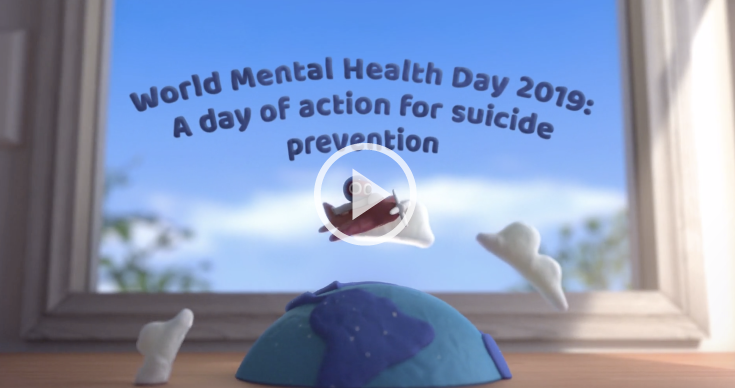To build a Europe without suicide, governments must act now

Europe has the highest suicide rate in the world. Yet, only 10 Member States in the European Union have suicide prevention strategies. By incorporating prevention into national health, education and labour programmes, we can stop suicide and save tens of thousands of lives each year.
Brussels, 10 October 2019 – Thursday, 10th October 2019 marks World Mental Health Day. The theme selected for this year’s Day is suicide prevention. According to the World Health Organisation, every 40 seconds someone loses their life to suicide. Globally, over 800 000 people die of suicide every year. For every suicide, 25 other people make a suicide attempt. Suicide is the second leading cause of death in 15−29-year-olds.
Despite Europe being the region with the highest suicide in the world, only 10 EU Member states have a national prevention strategy in place. In a call to mark World Mental Health Day 2019, Mental Health Europe (MHE) urges national governments to act and the EU to take the lead in supporting Member States:
- To develop and implement national prevention plans and strategies to tackle suicide and suicide attempts
- To raise public awareness and understanding of mental health
- To invest in programmes, integrated services and community support.
“The social, emotional, and economic costs of suicide pose a significant burden on our society. Only by implementing effective preventive strategies we can improve the situation and reverse the trend. To achieve success, we need governments to act, and the EU to take the lead in coordinating these actions.” – Jan Berndsen, President of Mental Health Europe
Suicide prevention is also a subject addressed in the European Parliament today, where members of MHE’s Coalition for Mental Health and Wellbeing and stakeholders will discuss the current situation in relation to suicide in Europe and come forward with concrete EU action on suicide prevention.
Ahead of the World Mental Health Day, the event’s host Julie Ward MEP (S&D, United Kingdom) said: “The European Union can no longer afford to neglect mental health and wellbeing of its citizens. Our individual and collective wellbeing has not been properly addressed for far too long and this is a matter that affects us all at some point in our lives. A comprehensive Mental Health Strategy for Europe, with a gender perspective, should be a priority for the new Commission and Parliament. Doing nothing will only result in more and more people suffering in silence, the victims of service cuts and stigma. The effects of poor mental health take a toll on our economy. We need to take stock of reality and invest in prevention and wellbeing as well as more co-production and people-centred treatments that fully respect the social model of disability.”
The event’s co-host Sara Cerdas MEP (S&D, Portugal) added: “Discussing mental health is crucial if we want to reduce stigma and discrimination. Suicide is a public health challenge counting over 60 000 deaths within the European Union each year. It is urgent to elaborate better strategies to implement programmes that promote mental health and wellbeing. We must support member states in increasing mental healthcare services and social support accessibility according to population needs, and have special attention to vulnerable populations.”
You can follow the event discussions from 14:00 CET on 10 October 2019 via #WMHDEU. See the event highlights here.
###
- For more information and for media requests, please contact Tetiana Sykes (+32 2 227 27 09 / Tetiana.Sykes@mentalhealtheurope.org)
- For more information about World Mental Health Day visit: https://wfmh.global/world-mental-health-day-2019/
- For more information about WHO’s 40 seconds of action campaign, see: https://www.who.int/docs/default-source/mental-health/suicide/flyer-40seconds-web.pdf
- If you need help, see https://www.iasp.info/resources/Crisis_Centres/Europe/
Stay connected
Get our latest news, personal stories, research articles, and job opportunities.